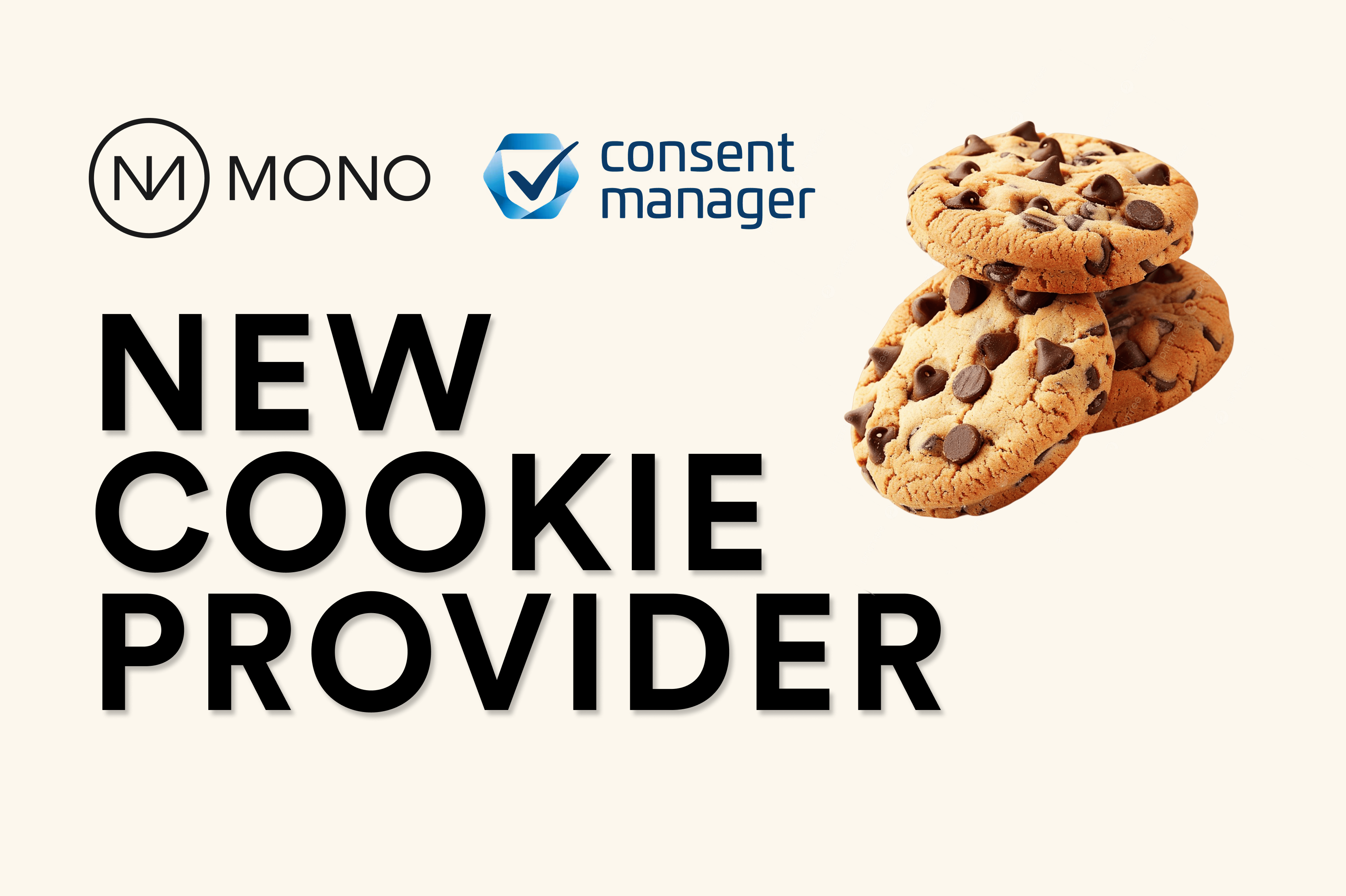Klara Sidlofova | 12/09/2025
Evolving Privacy Compliance Across Europe: What Resellers Need to Know in the Post-GDPR & Cookie Era
Five years after GDPR, privacy compliance in Europe remains an ongoing challenge, not a one-time task.
With evolving rules like the ePrivacy Regulation, Schrems II, national cookie law updates, and stricter enforcement, the bar continues to rise. For SMBs balancing limited resources and digital complexity, staying compliant can feel overwhelming. This is where trusted digital partners and resellers play a critical role—helping small businesses navigate requirements, build customer trust, and avoid costly mistakes.
Here’s what you need to know — and how Mono can help.
Privacy Isn’t Just Legal
Today’s consumers are more privacy-conscious than ever. Transparency and control aren’t just legal requirements, they’re expectations that influence purchasing decisions. SMBs who fail to meet those expectations risk more than fines, they risk losing customer trust.
At Mono, we actively monitor developments in this space, including initiatives like Max Schrems’ NOYB project (noyb.eu), and prepare for upcoming regulatory changes, such as a potential Schrems III ruling. While we won’t overreact to pending cases, we are designing our infrastructure with a careful balance — leveraging European providers without compromising on quality — to ensure privacy-by-default solutions for our clients.
Here are some of the key developments reshaping privacy compliance across Europe:
Schrems II ruling
Schrems II arose from Max Schrems’ complaint against Facebook, claiming that U.S. surveillance laws exposed EU citizens’ data to excessive government access. The Court of Justice of the EU ruled in 2020 that the EU–U.S. Privacy Shield was invalid because it failed to guarantee adequate protections. While Standard Contractual Clauses were upheld, companies must now assess recipient countries’ laws and apply supplementary safeguards before transferring data.
Country-specific updates
Nations like France, Germany, Denmark, and Spain are enforcing stricter interpretations of cookie laws, some requiring prior consent before setting non-essential cookies.
For example:
France
CNIL requires that your cookie banner must let users “Refuse all” as easily as “Accept all,” and designs that nudge acceptance (“dark patterns”) risk enforcement.
Germany
Non-essential cookies need explicit opt-in under TTDSG §25 (for example, no pre-ticked boxes) - so implement active consent before setting them.
Denmark
Under the Cookie Order, websites must obtain prior, informed consent before storing/reading any non-essential cookies (only strictly necessary cookies may load first).
Spain
The AEPD requires a “Reject all” button on the first layer of the banner, with equal prominence to “Accept”.
Key Strategies to Keep SMB Clients Compliant
Use a Consent Banner That’s Fully GDPR-Ready
Many cookie banners still fall short — either pre-ticking options, failing to allow granular choices, or burying opt-out functionality. We have just announced a new cookie provider, consentmanager, who supply:
• Fully customizable consent banners
• Geo-targeting - adapt the banner to national requirements
• Granular cookie controls
• Automatic updates with legal best practices
Champion a Data Minimization Mindset
Help your SMB clients answer this simple question: “Do we really need to collect this data?”
Encourage:
• Collecting only essential information (especially on forms and cookies)
• Avoiding default use of third-party trackers (e.g., social pixels) unless truly needed
• Using privacy-friendly analytics tools where possible
• Less data = less risk = easier compliance
Support Compliance by Design with Mono
Mono’s platform gives resellers the tools to embed compliance into the very foundation of a business’s digital presence:
• Cookie Consent product for ongoing cookie compliance
• Fast form setup with only necessary fields
• Hosting in secure, GDPR-compliant data centers
The result? Resellers can deliver privacy-by-default solutions without heavy legal overhead for their clients.
Be the Compliance Guide SMBs Need
Many SMBs don’t know where to start, or even what regulations apply. This is your chance to add real value:
Educate: Share practical updates on privacy rules in your market.
Audit: Offer website privacy checkups.
Package: Include compliance tools as part of your core offer.
Differentiate: Position yourself not just as a website provider, but as a long-term, trust-first partner.
Regulations will continue to evolve. So will consumer expectations. By leveraging tools like Mono’s Cookie Consent and applying smart data practices, resellers can help SMBs stay ahead of the curve — with confidence.
Privacy isn’t going away. Make it a strength.
